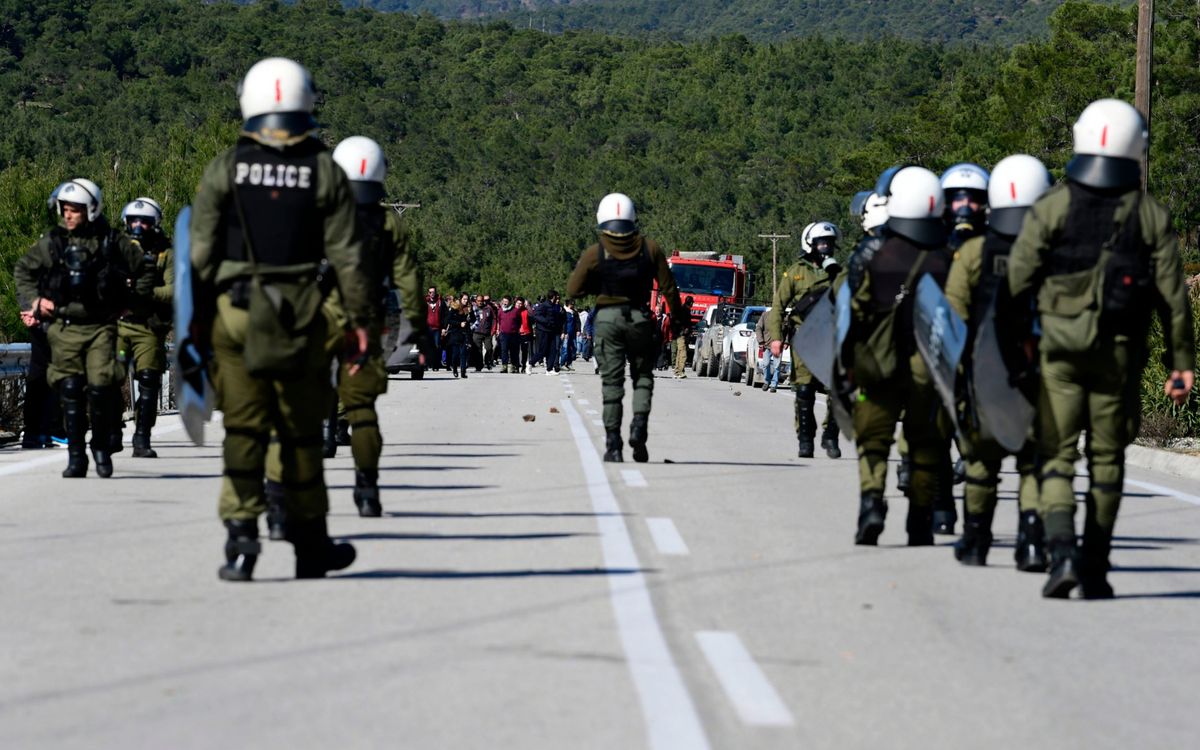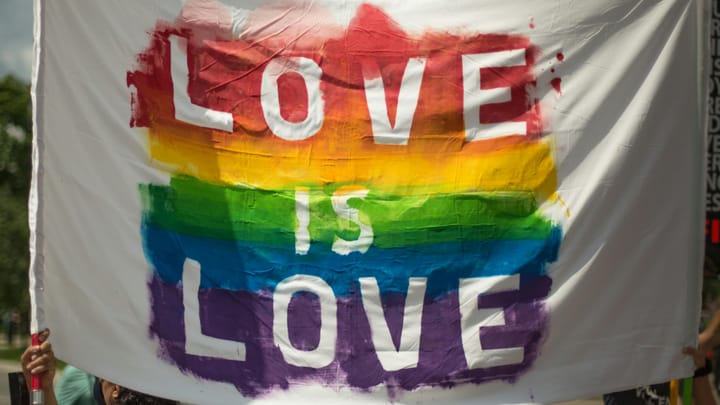Protests on Greek islands over migrant detention centers

A few minutes every morning is all you need.
Stay up to date on the world's Headlines and Human Stories. It's fun, it's factual, it's fluff-free.
Early on Tuesday, clashes broke out between police and protesters on the Greek Island of Lesbos as residents set fire to bins and used municipal rubbish trucks to try to block the port area in an attempt to prevent the unloading of machinery that will be used to build new migrant detention centers.
The police fired teargas to disperse crowds with clashes spilling into the streets as residents tried to block access to the construction site. Similar clashes were reported on the island of Chios.
Both Lesbos and Chios, as well as three other islands — Samos, Leros and Kos — have seen an influx of refugees and asylum seekers hoping for passage into Europe from Turkey. To deal with the influx, the government is pressing ahead with plans to construct closed detention centers to replace the existing open access camps that have become overcrowded.
More than 42,000 people currently occupy camps designed to accommodate 5,400. Authorities say the new centers will offer greater public safety and limit potential health risks.
The government’s decision has angered residents and local authorities who feel they are being left to bear the brunt of the refugee crisis and that the centers would leave the islands permanently overcrowded.
“We understand that there is a problem of trust that was created over the previous years,” the government’s spokesman, Stelios Petsas, told state-run TV. “But the closed facilities will be built and we are calling on the public to support this.”
Petsas also spoke of the government’s need to act due to heightened concerns over the coronavirus outbreak, saying, “It is clearly evident that matters such as the coronavirus can be dealt with swiftly and effectively in a closed facility and not an anarchic, open facility which is a health time bomb.”
The situation on the Greek Islands
In 2015 and 2016 Europe saw a sharp increase in the number of migrants crossing into the continent, with hundreds of thousands coming through the Greek Isles from Turkey. This led the European Union (EU) to broker a deal with Turkey to curb arrivals.
However, those numbers began to increase again in 2019. Under the EU-Turkey deal, asylum seekers are forced to remain on the islands while being processed and are forbidden from traveling to the Greek mainland without special permission. This has led to a backlog of 90,000 applicants in addition to overcrowding in camps.
The conditions on the islands have led to protests from locals. Stratis Kytelis, the mayor of Mytilene, the capital of Lesbos, said that the protests had started due to the government’s having failed to fulfill a pledge to drastically reduce the number of migrants on the island over the winter months.
“We don’t believe their assurances that all existing structures will be shut down,” Kytelis said. “People on the islands … opened their homes and gave what little they had to help (refugees) but unfortunately, because of bad policies the situation is now out of control,” he added. “Europe has put up walls against us, and trapped immigrants and refugees on our island.”
Greece’s government has begun to take a tougher stance with plans to bolster border patrol and fast track the asylum process.
The Minister for Immigration and Asylum, Notis Mitarachi, said, “What might not be a crisis for Europe today, or for Greece overall today, is a big issue for five islands,” adding that
“We will be deporting those not entitled to protection.”
“The proposed plan is reducing the people on the islands by more than 50%, which is the most efficient way we have today to mitigate flows, help reduce flows and run the asylum process. What we want is for no one to ever enter the islands again,” Mitarachi added.
[article_ad]




Comments ()